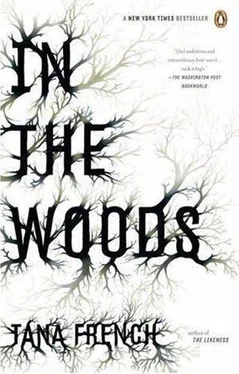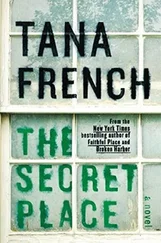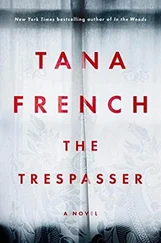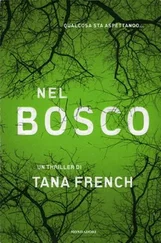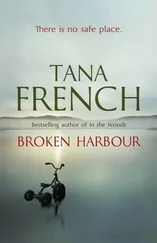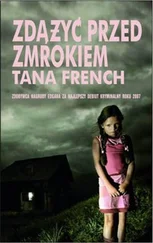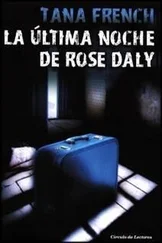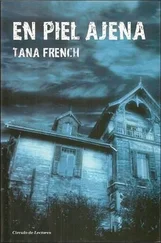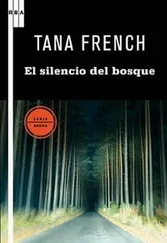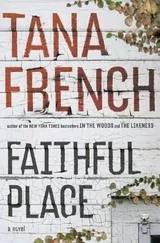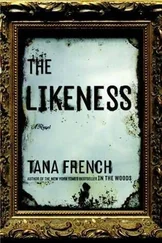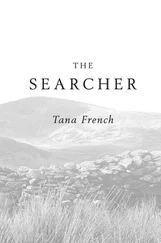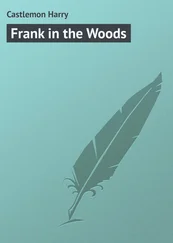Imagine my surprise, then, when I realized that there was nothing there. Everything before my first day of boarding school had apparently been excised from my mind, with surgical precision and this time for good. Peter, Jamie, the bikers and Sandra, the wood, every scrap of memory I had retrieved with such laborious care over the course of Operation Vestal: gone. I could remember what it had been like to remember these scenes, once upon a time, but now they had the remote, secondhand quality of old films I had watched or stories I had been told, I saw them as if from a vast distance-three brown-skinned kids in battered shorts, spitting on Willy Little's head from the branches and scrambling away, giggling-and I knew with cold certainty that over time even these deracinated images would shrivel up to nothing and blow away. They no longer seemed to belong to me, and I couldn't shake the dark, implacable sense that this was because I had forfeited my right to them, once and for all.
Only one image remained. A summer afternoon, Peter and me sprawled on the grass in his front garden. We had been trying, in a halfhearted kind of way, to make a periscope from instructions in an old comic book, but we were supposed to have a cardboard tube out of a roll of paper towel, and we couldn't ask our mothers for one because we weren't talking to them. We had used rolled-up newspaper instead, but it kept buckling, so all we could see through the periscope was the sports page, backwards.
We were both in a really bad mood. It was the first week of the holidays and it was sunny, so it should have been a brilliant day, we should have been fixing the tree house or freezing our mickeys off swimming in the river or something; but on our way home from the last day of school on Friday, Jamie had said, to her shoes, "Three months and I go to boarding school."
"Shut up," Peter had said, shoving her, not hard. "No you won't. She'll give in." But it had taken all the shine off the holidays, like a huge black smoke-cloud hanging over everything in sight. We couldn't go inside because our parents were all mad at us for not talking, and we couldn't go into the wood or do anything good because everything we thought of felt stupid, and we couldn't even go find Jamie and get her to come out because she would just shake her head and say "What's the point?" and make everything even worse. So we were lying in the garden, bored and itchy and annoyed with each other and with the periscope for not working and with the entire world for being a pain in the hole. Peter was pulling up blades of grass, biting the ends off and spitting them up into the air, in a restless automatic rhythm. I was lying on my stomach, one eye open to stare down at the ants bustling back and forth, and the sun was making my hair sweat. This summer doesn't even count, I thought. This summer sucks.
Jamie's door slammed open and she shot out like she had been fired from a cannon, her mother calling after her with a rueful smile in her voice and the door ricocheting shut with a bang and the Carmichaels' horrible Jack Russell exploding into high-pitched inbred hysteria. Peter and I sat up. Jamie skidded to a halt at her gate, head whipping round to look for us, and when we shouted to her she raced down the path, leaped over Peter's garden wall and tumbled flat on the grass with an arm hooked round each of our necks, bringing us down with her. We were all yelling at the same time and it took a few seconds before I figured out what Jamie was shouting: "I'm staying! I'm staying! I don't have to go!"
The summer came to life. It burst from gray to fierce blue and gold in the blink of an eye; the air pealed with grasshoppers and lawnmowers, swirled with branches and bees and dandelion seeds, it was soft and sweet as whipped cream, and over the wall the wood was calling us in the loudest of silent voices, it was shaking out all its best treasures to welcome us home. Summer tossed out a fountain of ivy tendrils, caught us straight under the breastbones and tugged; summer, redeemed and unfurling in front of us, a million years long.
We disentangled ourselves and sat up panting, barely able to believe it.
"Seriously?" I said. "For definite?"
"Yeah. She said, 'We'll see, I'll have another think about it and we'll sort something out,' but that always means it's OK but she just doesn't want to say so yet. I'm going nowhere !"
Jamie ran out of words, so she pushed me over. I grabbed her arm, got on top of her and gave her a Chinese burn. There was a huge grin straight across my face, and I was so happy that I thought it would never come off again.
Peter was on his feet. "We have to celebrate. Picnic in the castle. Go home and get stuff and meet there."
Rocketing through the house to the kitchen, my mother hoovering somewhere upstairs-"Mam! Jamie's staying, can I take stuff for a picnic?" as I grabbed three packets of crisps and a half-package of custard creams and shoved them up my T-shirt-then out the door again, waving to my mother's startled face on the landing, and one-handed over the wall.
Coke cans fizzing and foaming over, and us on our feet on top of the castle wall to clank them together. "We won !" Peter shouted up into the branches and the glittering bands of light, head thrown back and fist punching the air. "We did it!"
Jamie screamed, "I'm gonna stay here forever!" and danced on the wall like a thing made of air, "Forever and ever and ever!" And I just yelled, wild wordless whoops, and the wood caught our voices and tossed them outwards in great expanding ripples, wove them into the whirlpool of leaves and the jink and bubble of the river and the rustling calling web of rabbits and beetles and robins and all the other denizens of our domain, into one long high paean.
This memory, alone of all my hoard, did not dissolve into smoke and slide away through my fingers. It remained-still remains-sharp-edged and warm and mine, a single bright coin left in my hand. I suppose that, if the wood was going to leave me only one moment, that was a kind one to choose.
* * *
In one of those merciless little codicils that such cases sometimes have, Simone Cameron rang me not long after I got back to work. My mobile number was on the card I had given her, and she had no way of knowing that I was cross-checking joyriders' statements in Harcourt Street and no longer had anything to do with the Katy Devlin case. "Detective Ryan," she said, "we've found something I think you must see."
It was Katy's diary, the one Rosalind had told us she'd got bored with and thrown away. The Cameron Academy's cleaning lady, in an unaccustomed fit of thoroughness, had found it taped to the back of a framed poster of Anna Pavlova that hung on the studio wall. She had rung Simone, agog with excitement, when she read the name on the cover. I should have given Simone Sam's number and hung up, but instead I left the joyriders' statements unchecked and drove down to Stillorgan.
It was eleven in the morning and Simone was the only person at the Academy. The studio was flooded with sunlight and the photos of Katy had been taken off the notice-board, but one breath of that specific professional smell-resin, hard clean sweat, floor polish-brought it all back: skateboarders calling on the dark street below, rush of padded feet and chatter in the corridor, Cassie's voice beside me, the high singing urgency we had brought with us into the room.
The poster lay facedown on the floor. Dusty sheets of paper had been taped to the back of the frame to form a makeshift pouch, and on top of them was the diary. It was just a copybook, the kind kids use in school, lined pages and the cover that grubby recycled orange. "Paula, who found this, had to go on to her next job," Simone said, "but I have her phone number if you like."
Читать дальше
